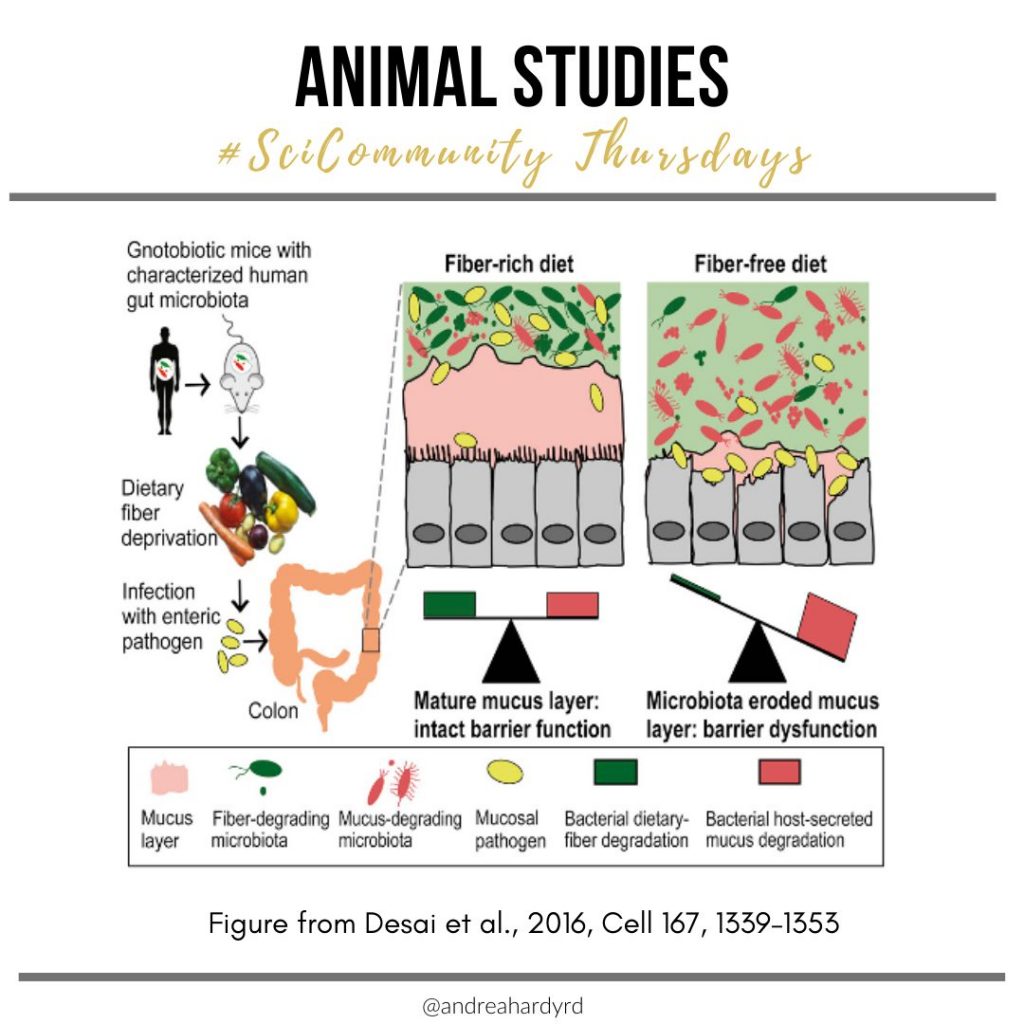How do we apply animal studies to humans? On Instagram @AndreaHardyRD, I talk all about animal studies and whether or not they are important for the scientific process.
Last time I checked, we’re not rats…????????????????⠀
⠀
So what’s the point of animal studies? Animal studies are INTEGRAL in the scientific process. ⠀
⠀
They help us:⠀
1. Understand mechanisms of action⠀
2. You can get answers more quickly in the lifespan of an animal⠀
3. Determine if something has POTENTIAL to translate to humans (‘preclinical’ -the first step in asking the question ‘could this be the same in humans?’)⠀
4. Give us a model to explore things like toxicity ⠀
5. Certain types of animals are more susceptible to human diseases, or can be bred in a way to make them more susceptible, ensuring we can design an experiment that tests exactly what we think it should be testing.⠀
⠀
For example – we know fibre is critical for gut barrier function, because animal studies allowed us to explore a mechanism of action.⠀
⠀
We could not know that a low fibre diet impaired barrier function and led to higher incidence of death when infected by a deadly pathogen in humans. That would have required us to:⠀
⠀
a) put humans on a fibre devoid diet⠀
b) infect them with a deadly pathogen⠀
⠀
Not an option- which is why animal models are an essential part of moving research forward.⠀
⠀
However! We CANNOT take a single animal study and apply the findings, hook, line, and sinker to humans- especially without disclosing the data came from animal models AND discussing limitations.⠀
⠀
We’re not rats. But, rats can be incredibly useful in moving from correlative data in humans to causative data – why? Because we can more thoroughly investigate the mechanism of action.


Recent Comments